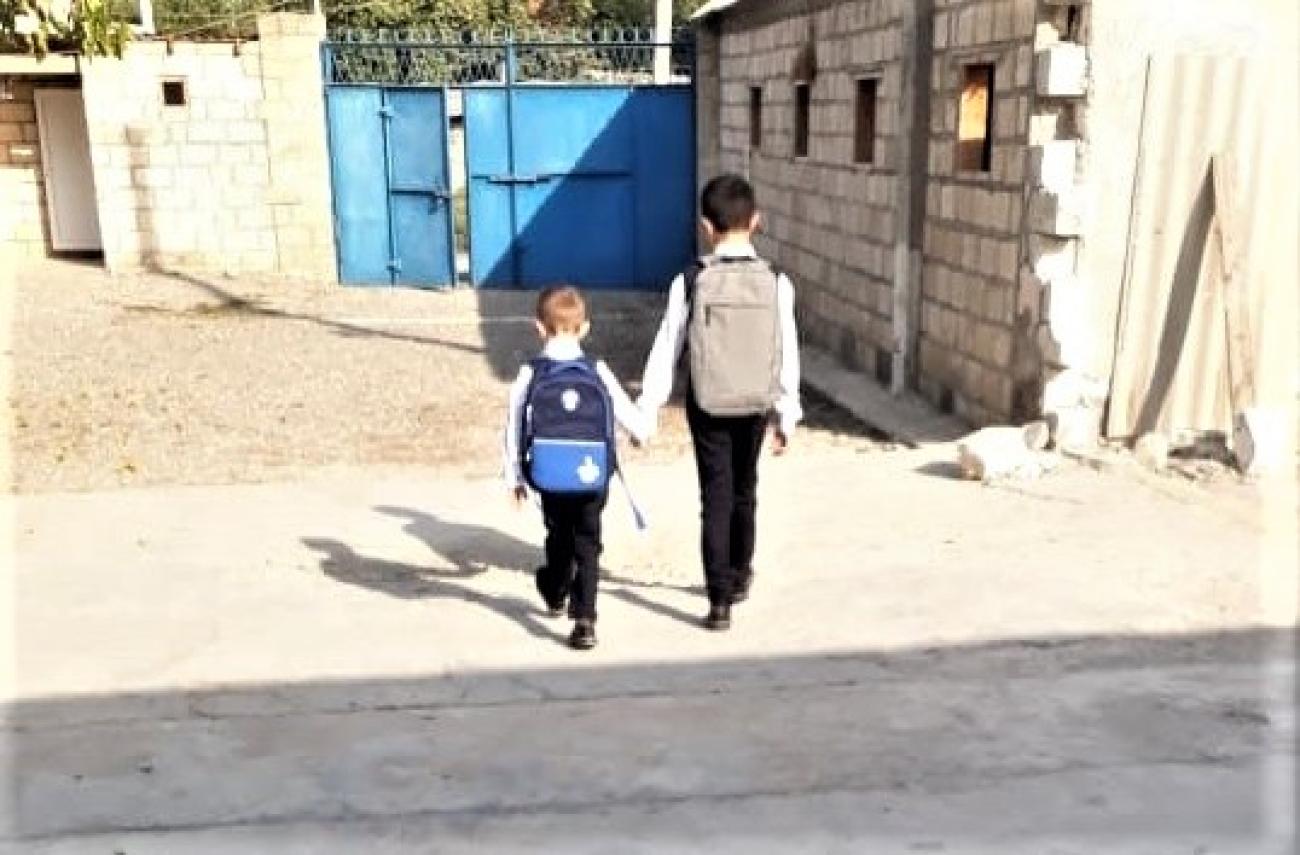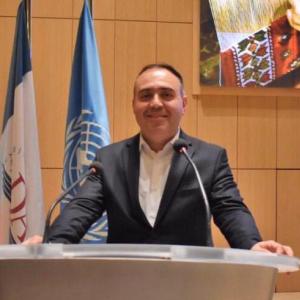As a result of the last year’s conflict which raged unabated for six weeks and caused many casualties, damages and displacement, the diverse humanitarian needs have emerged in conflict-affected districts in Azerbaijan. According to the Government sources, at least 40,000 people were temporarily displaced from their place of residence in Aghdam, Aghjabadi, Barda, and Tartar districts of Azerbaijan. Even almost a year after the conflict, it still has serious consequences for the conflict-affected people.
With EU humanitarian funding, IOM Azerbaijan runs a project on providing humanitarian assistance to conflict-affected populations. The project is funded by the European Union through its Civil Protection and Humanitarian Aid Operations and aims to contribute to addressing the humanitarian and early recovery needs of the most vulnerable persons affected by the conflict. The project delivers immediate cash-based assistance to 1,500 households affected by the conflict.
Within the project implemented in coordination with the Ministry of Labour and Social Protection of Population, the State Committee for Affairs of Refugees and IDPs, and local authorities, IOM Azerbaijan has already provided monetary assistance to selected 350 persons affected by the conflict in 2020. Out of 2,983 interviewed persons from conflict-affected districts, 1,136 were selected available to get this assistance based on the eligibility criteria.
34-year-old Elmir Mammadov is among those already supported with this assistance. When the conflict escalated, he fled the house in Chiragli village of Aghdam district which was located near the frontline.
“When the conflict started, our village was heavily shelled. I managed to evacuate my family from the village. But my house was partially destroyed, our animals were killed during the shelling,” he says.
Elmir took his family to relatives who lived away from the conflict zone, and when the hostilities were over, he returned home.
“The house was partially damaged. All the windows and doors were blown out, all the electrical appliances and wires were ruined. I had to repair the destroyed part of the house on my own,” Elmir says.
He hopes for a safe and happy future for his family.
“Before we lived near the frontline and almost every day our village was under fire. Part of the arable land of the village was mined and residents could not use it. I hope that soon the lands will be cleared of mines and we will be able to live a peaceful life.”
Elmir says that today any help is important and “Humanitarian aid means attention, moral support for us,” he says.
Cash assistance for conflict-effected persons allows beneficiaries to decide for themselves how to cover essential needs such as bills, food, medicine, goods, etc. It provides them with flexibility and freedom of choice in meeting their needs.
Elmir decided to buy for his 7-year-old and 12-year-old sons school uniforms and supplies. “I want a good future for my sons. To have the opportunity to make their dreams come true, they need to have a good education. I try to provide them with everything they need for this,” says Elmir.




